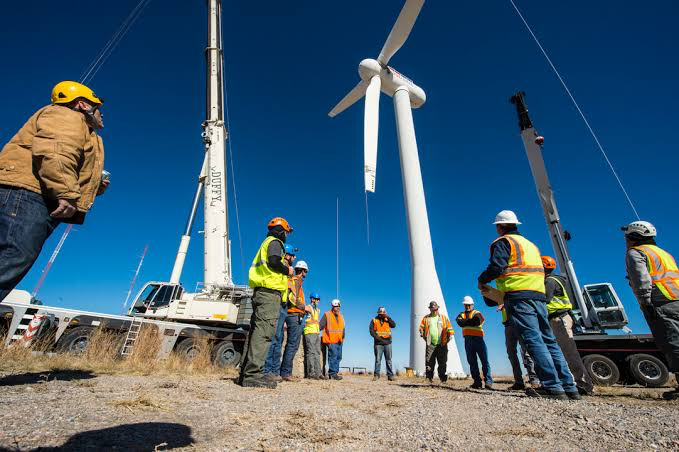In a pivotal move by the Biden administration, new rules were announced on Tuesday aimed at bolstering the wages and benefits for workers in the clean energy sector, ensuring they are competitive with traditional energy industries like oil and gas. This development is part of the Inflation Reduction Act signed into law in 2022, which allocates an estimated $370 billion for solar, wind, and electric vehicle subsidies.
Elevating Wage Standards
Under the guidelines set by the Treasury Department, companies engaged in clean energy projects can now claim enhanced tax credits if they adhere to specific labor standards. To qualify, firms must pay prevailing wages and hire apprentices, actions that will entitle them to tax credits five times the base rate of 6% outlined in the Inflation Reduction Act. This substantial incentive is designed to make jobs in renewable energy sectors not only more plentiful but also more lucrative.
Sean McGarvey, president of North America’s Building Trades Unions (NABTU), expressed optimism about the new regulations. On a call with reporters, McGarvey emphasized, “With these new rules in place, we expect substantial wage increases for many currently in this industry and for the hundreds of thousands who will join. However, these positions will offer middle-class, family-sustaining wages along with significant healthcare and retirement benefits.”
To facilitate compliance with these new rules, the administration is promoting the use of project labor agreements. These agreements set specific wage and employment terms between trade unions and contractors for individual projects, ensuring that all parties meet the established standards. This move is also seen as strengthening Biden’s commitment to supporting unions, which are a crucial base of his political support.
Moreover, the Treasury has announced that the Internal Revenue Service (IRS) will allocate considerable resources to oversee and enforce these new standards. This level of federal involvement underscores the administration’s commitment to the successful implementation of these policies, aiming to foster a robust and fair clean energy workforce.
Political and Economic Implications
As President Biden prepares for a general election rematch with former President Donald Trump in November, these initiatives are likely to feature prominently in his campaign. By aligning economic policy with environmental sustainability, Biden is positioning these labor standards as a cornerstone of his administration’s agenda to combat climate change while bolstering the economy.
The measures reflect a broader vision that fighting climate change is not only an environmental necessity but also an opportunity to create millions of well-paying jobs. As the global shift towards renewable energy gains momentum, these policies could set a precedent for how governments worldwide can integrate economic growth with sustainable practices.
The new subsidy rules represent a significant step forward in harmonizing the economic and environmental objectives of the U.S. energy policy. Moreover, by enhancing the competitiveness of clean energy jobs, the Biden administration aims to ensure that the sector is attractive for workers and beneficial for the economy, setting a sustainable path forward for the energy industry.
Source: Reuters



